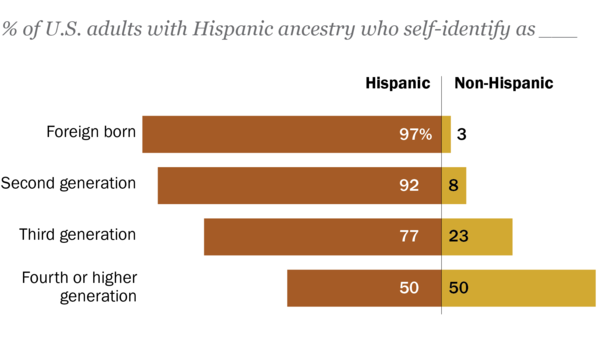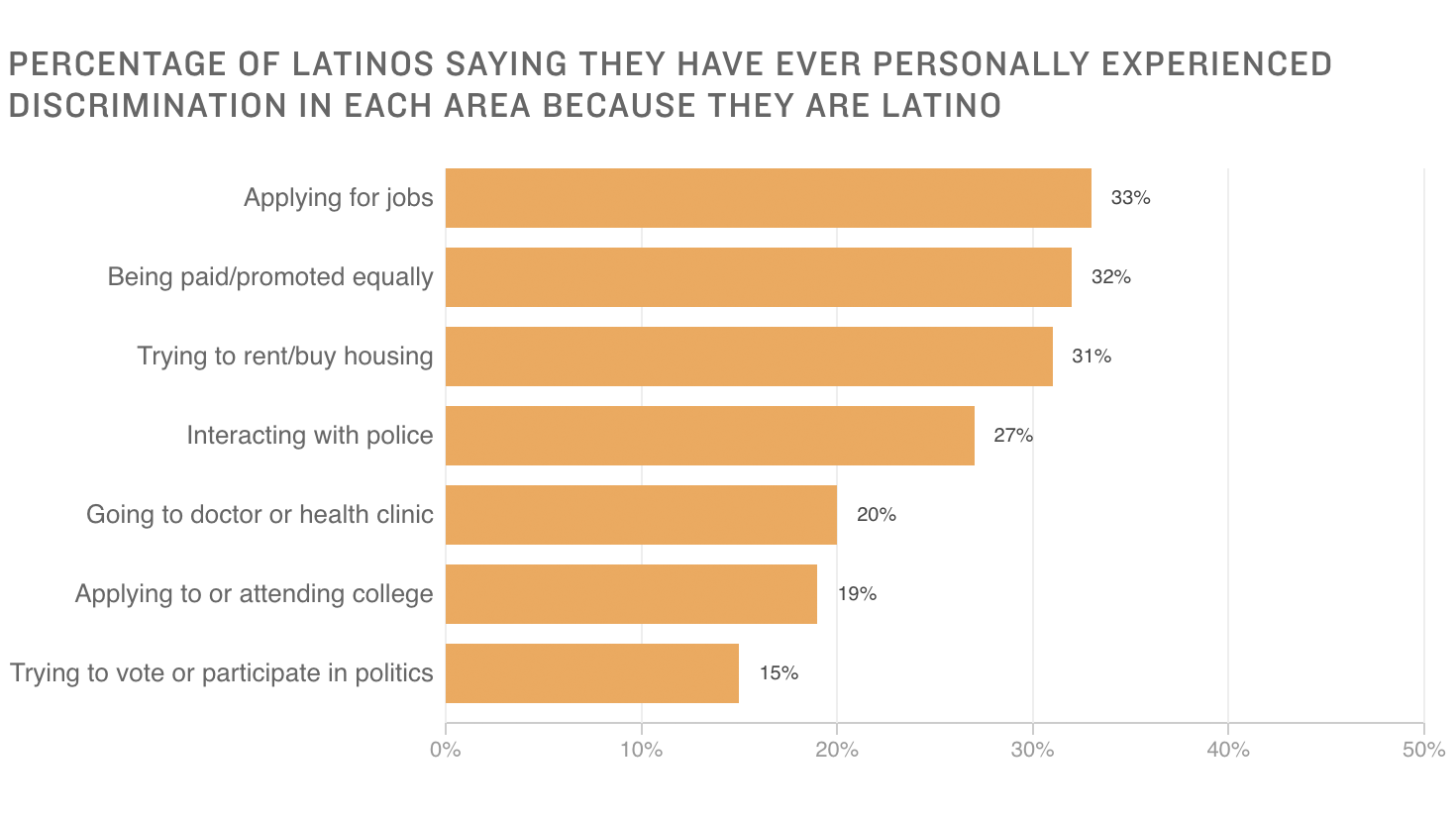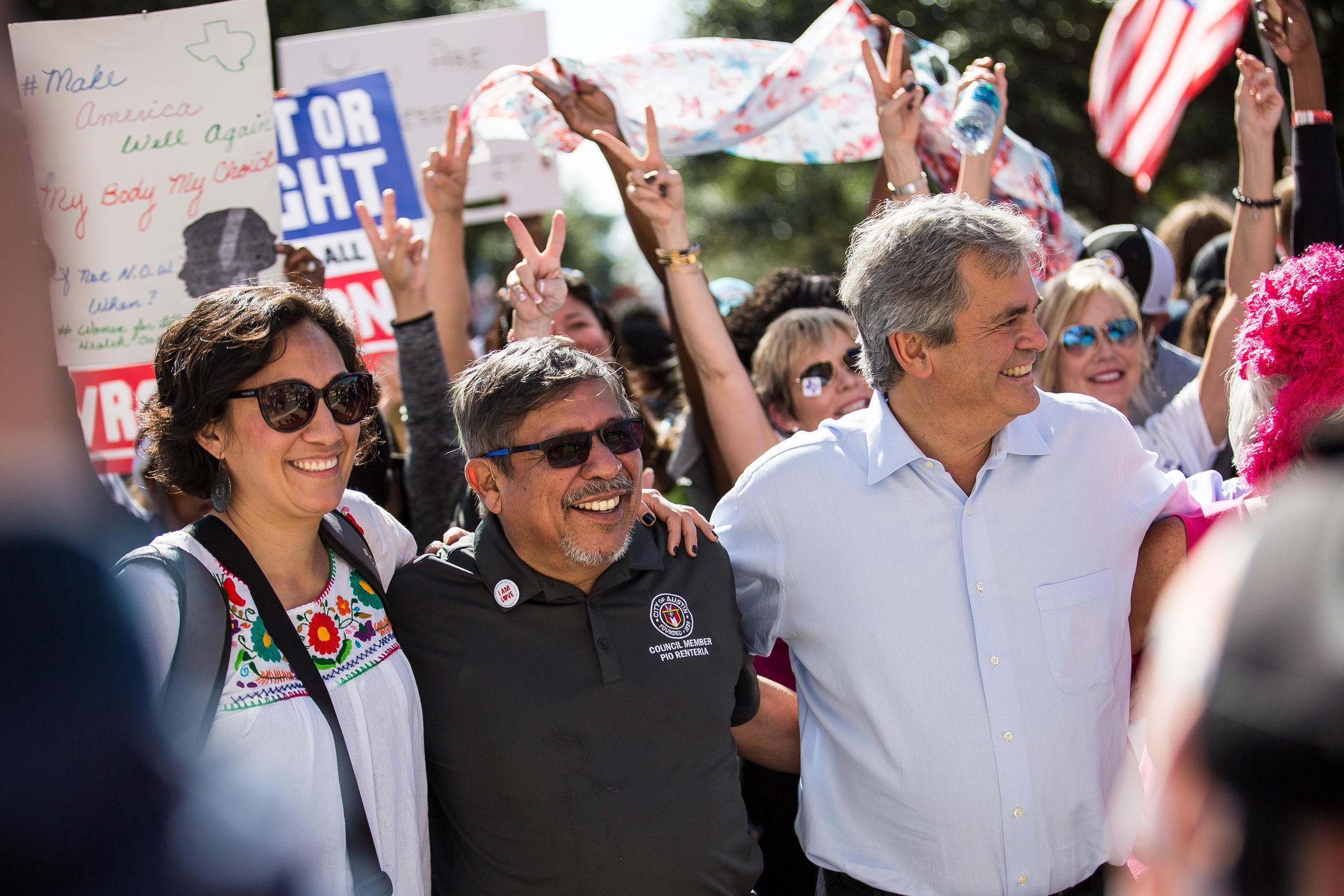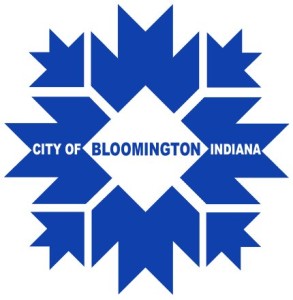As Puerto Rico continues to rebuild in the aftermath of Hurricane Maria, Indiana University is offering qualified undergraduate students who are currently enrolled in accredited Puerto Rican colleges and universities the opportunity to spend the Spring 2018 semester at any IU campus. Find information for Puerto Rican students interested in a visiting semester at IU and information for IU faculty who would like to sponsor these students.
Category Archives: News
Latino Civil Rights Leader Speaks Out About Trump’s Immigration Framework
This week, the head of the country’s oldest Latino civil rights organization took a surprising position. We are talking about Roger Rocha. He’s president of LULAC, the League of United Latin American Citizens. On Sunday, he endorsed White House principles for an immigration deal in a letter of thanks to President Trump. Those principles include border security, ending the visa lottery, cutting back on family reunification along with DACA, legalizing people who were brought over the border as young children. Rocha withdrew his letter after an outpouring of criticism and calls for him to resign.
Company scraps plan for Indiana immigrant detention center
Goshen Mayor Jeremy Stutsman, wrote a letter opposing the construction of the detention center and gained a number of co-signers from the business community, was pleased with CoreCivic’s decision.
“(I’m) obviously pretty happy they decided to move on and very grateful for the amount of community members, businesses leaders and elected officials for their work to benefit our county,” Stutsman said.
Heartland Democrats to Washington: You’re Killing Us
 AUSTIN, Ind.—Steering his white Dodge Ram while wearing a tan knit cap, a drab green Carhartt coat and a smear of brown livestock feed on his cheek, Terry Goodin jounced over frozen-hard mud toward his 100 head of beef cattle. “Make sure they’re all four legs down and not four legs up, in this kind of weather,” he told me in his southern Indiana drawl. The temperature overnight had dipped toward zero. Now, midmorning, it stood at 16 degrees. On the rear of his old pickup truck was a “Farmers For Goodin” bumper sticker, and rattling around his head were thoughts of what he was going to say the following week in a starkly different setting—up in Indianapolis, at the regal limestone capitol building, in his introductory speech as the leader of his caucus in the state legislature.
AUSTIN, Ind.—Steering his white Dodge Ram while wearing a tan knit cap, a drab green Carhartt coat and a smear of brown livestock feed on his cheek, Terry Goodin jounced over frozen-hard mud toward his 100 head of beef cattle. “Make sure they’re all four legs down and not four legs up, in this kind of weather,” he told me in his southern Indiana drawl. The temperature overnight had dipped toward zero. Now, midmorning, it stood at 16 degrees. On the rear of his old pickup truck was a “Farmers For Goodin” bumper sticker, and rattling around his head were thoughts of what he was going to say the following week in a starkly different setting—up in Indianapolis, at the regal limestone capitol building, in his introductory speech as the leader of his caucus in the state legislature.
Identity Fades As Immigrant Ties Weaken
 Latinos are one of the fastest-growing racial or ethnic groups in the U.S. But a new finding by the Pew Research Center suggests the Hispanic population may not get as big as demographers have predicted.
Latinos are one of the fastest-growing racial or ethnic groups in the U.S. But a new finding by the Pew Research Center suggests the Hispanic population may not get as big as demographers have predicted.
About one in 10 adults with Hispanic parents, grandparents or other ancestors do not identify as Hispanic or Latino, according to Pew. The report estimates this group includes close to five million people, many of whom say their background is “mixed” or their Hispanic roots are “too far back.”
“It’s not that they’re hiding their Hispanic background,” says Mark Hugo Lopez, Pew’s director of Hispanic research who co-wrote the report. “But they just don’t self-identify or feel that they should affiliate themselves with being Hispanic or identifying as Latino.”
Letter from City Commission regarding current latino affairs
Members of the Bloomington Community,
For years the City of Bloomington Commission on Hispanic and Latino Affairs has served to identify and research the issues which impact the Hispanic/Latino populations in Bloomington, especially in the areas of health, education, public safety and cultural competency.
We support all Hispanics/Latinos including immigrants, refugees, and multi-generational U.S.-born folks who despite lifetimes in the U.S. are identified as Hispanic/Latino according to U.S. census. While the commission is not affiliated or motivated by any political party, we cannot deny that our work and sentiment is affected by the national rhetoric which vilifies and, in some cases, criminalizes the very existence of people in our community.
The decision to end DACA destabilizes the lives and futures for hundreds of thousands of folks who have no other crime than having been born outside of the lines you and I know as the U.S. border. The impact of the DACA repeal means splitting up families, interrupting communities and workplaces, and deporting adults and children to countries they have never really known. And for those of us who stay, we lose relationships, and we lose our emotional and economic investments in believing in and professing an American dream for all.
We hope to serve as a catalyst to promote positive public and private solutions to multi-faceted issues confronting Hispanic/Latino neighbors ensuring to document the resulting effects of action and inaction on our community. We unreservedly oppose the decision of the Trump Administration to end DACA especially without a defined and humane path forward for our neighbors, friends, and family.
The U.S. Chamber of Commerce has studied and proposed common sense immigration reform for years and published detailed analysis to dispel myths, which are used for political advantage. Opinions and false conclusions have been related as truths regarding “illegals” so we compiled a shortlist of facts for clarity.
Undocumented folks:
1. Do not receive free government healthcare. Undocumented folks do not qualify for Medicaid or the Healthy Indiana Plan.
2. Do not take jobs that would be filled by citizens. There is no correlation between high unemployment and immigration. Findings indicate undocumented folks become entrepreneurs – create jobs – at twice the rate as U.S.-born folks.
3. Do pay taxes. Taxes paid by undocumented folks proportionately to U.S.-born folks include property, excise, and sales tax. Also federal, state and local income taxes, Social Security and Medicare taxes are automatically deducted from paychecks just like everyone else. In 2013, undocumented folks contributed $11.6 billion in state and local taxes.
4. Are not eligible tax-funded benefit programs. Data from the Social Security Administration shows that in 2010 undocumented folks paid $13 billion in payroll taxes to Social Security and Medicare, benefits that are only accessible to citizens.
Additional findings by the U.S. Chamber of Commerce include:
– Immigrants do not drive down wages of U.S.-born workers.
– Immigrants have economically revitalized many communities.
– Immigrants do not cause crime rates to rise and are less likely to commit crime than U.S.-born individuals.
– Mass deportation of undocumented immigrants would severely damage the U.S. economy.
Facts and statistics aside, we must remember that DACA recipients are human beings and members of our community. DACA recipients have lived in the U.S. most of their lives – this is home. DACA recipients have families, jobs, and contributors to our community. To drive them away will not just damage our community as a whole but, at its base, it is cruel and inhumane.
Sincerely,
City of Bloomington Commission on Hispanic and Latino Affairs
Book chronicles family’s roots from Mexico to Gary
“We had a very small wedding but solemn at church,” the new bride wrote in English, her second language.
An orchestra played at the church early that morning, and again at the couple’s wedding reception in San Francisco del Rincon, the municipal seat in the state of Guanajuato, Mexico. The groom requested the song, “Siempre te amare,” or “I’ll always love you.”
The young Francesca had no idea how important her writings would become to her family decades later and into the 21st century.
Federal judge prohibits ICE detainers in Marion County
A federal judge has approved of a settlement between the ACLU of Indiana and the Marion County Sheriff’s Office to end Immigration and Customs Enforcement hold requests on people accused of living in the country illegally unless there is a warrant.
The action comes despite the U.S. Justice Department’s intervention in the case and requests that the Sheriff’s Office comply with the ICE seizure requests.
In a 36-page order handed down Tuesday evening, U.S. District Judge Sarah Evans Barker issued an injunction that prevents the Sheriff’s Office from detaining any person based solely on detention requests from ICE unless there is a warrant or probable cause.
An ICE detainer is a request of local police to hold people in jail beyond the time when they otherwise should be released, generally a 48-hour period. ICE is seeking more time to check their citizenship status and, if needed, get a deportation warrant, even if the initial arrest is for something minor, say a traffic infraction.
1 In 3 Latinos Report Discrimination
 About a third of Latinos in America say they’ve been personally discriminated against when it comes to applying for jobs, being paid equally or considered for promotions — and when trying to rent a room or apartment or buy a house. Slightly more (37 percent) say they’ve personally experienced racial or ethnic slurs because of their race or ethnicity.
About a third of Latinos in America say they’ve been personally discriminated against when it comes to applying for jobs, being paid equally or considered for promotions — and when trying to rent a room or apartment or buy a house. Slightly more (37 percent) say they’ve personally experienced racial or ethnic slurs because of their race or ethnicity.
These are some of the key findings NPR is releasing Wednesday from a poll done with the Robert Wood Johnson Foundation and the Harvard T.H. Chan School of Public Health. The survey of 3,453 adults looked at a wide range of issues in many groups and included 803 adults identifying as Latino or Hispanic. The poll also surveyed African-Americans, white Americans, Native Americans, Asian-Americans and LGBTQ adults. We are releasing data by each of these groups on a weekly basis.
Facing Discrimination In Public Life, Latinos Stay Positive About Government
 Latinos say institutional discrimination, including discrimination while trying to vote or participate in politics, is a problem in America today. However, when asked, many Latinos reported feeling better about their local government.
Latinos say institutional discrimination, including discrimination while trying to vote or participate in politics, is a problem in America today. However, when asked, many Latinos reported feeling better about their local government.
That’s according to a new survey out this week from NPR, the Robert Wood Johnson Foundation and the Harvard T.H. Chan School of Public Health.
The survey found that 15 percent of Latinos say they’ve been discriminated against personally when trying to vote or participate in politics because they are Latino. Separately, 1 in 10 says that where he or she lives, other Latinos are “often” discriminated against in voting or politics.

